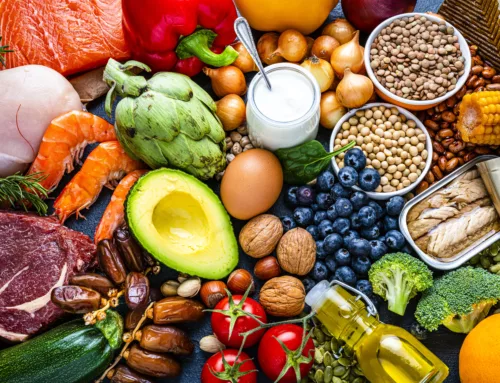Food is an integral part of our lives, in more ways than one.
We need food, of course, for physical nourishment, to fuel our bodies, minds, brains and other organs, to keep them functioning well, but food is also much more than that. It’s a large part of many cultures, religions, family traditions and other connective events; certain foods can be sentimental, and even just the smell or sight of them can evoke strong emotions in us.
For some people, though, food is not such a joyful experience. It might bring feelings of guilt or shame, insecurity and fear. An unhealthy relationship with food takes a toll on both the mind and body of the individual suffering from it, but it doesn’t have to be something you struggle with for the rest of your life.
If you’re ready to change your relationship with food, you’ve come to the right place.
We’re going to take a closer look at what having a healthy relationship with food means, what it looks like in practice and how to start building a healthier relationship with food today.
What is an unhealthy relationship with food?
An unhealthy relationship with food refers to disordered, self-sabotaging or otherwise harmful behaviors surrounding your interactions with food. This can manifest a little differently in each person’s life, but shares the same underlying challenges and (often) negative thinking patterns.
Signs you may have an unhealthy relationship with food:
- Obsessing over what you eat
- Highly restrictive eating, or binging
- Feeling guilt, anxiety or shame around food
- Eating to avoid dealing with uncomfortable emotions
- Intense cravings that feel uncontrollable
- Exercising as punishment for eating
An unhealthy relationship with food might seem impossible to fix, especially if it’s something you’ve been struggling with for years, but recovery and healing is absolutely possible.
What is a healthy relationship with food?
One of the reasons so many people lack a truly healthy relationship with food is not because they can’t afford organic fruits and vegetables; nutrition is vital, but only one part of the picture.
A healthy relationship with food is more than just eating healthy, it’s eating healthy with intention (awareness of what you’re eating and why). It’s seeing food as good and essential in and of itself, whether or not you’ve exercised today, and regardless of how hard you pushed yourself.
A healthy relationship with food looks like relaxed eating in social settings; it means enjoying ice cream or a pasta dish with your friends without fear. It can be as subtle as being able to confidently say yes when someone offers you dessert, knowing you are going to be able to savor every bit of that dessert without guilt and without binging or turning to purging.
Now that you’ve glimpsed what your relationship with food could look like, we’re going to teach you how to make it your reality.
How to have a healthy relationship with food
There is no type of guideline for how to change your relationship with food, but there are certain practices and habits that have been proven to be highly beneficial on the road to recovery.
Some ways you can begin improving your relationship with food include:
- Eat when you’re hungry, stop when you’re 80 percent full (leave room for digestion)
- Stop labeling foods as “junk” foods (reframe as “fun foods” to be enjoyed in moderation)
- Find healthy snacks you love, and keep them on hand (manage cravings)
- Cook meals you’re going to genuinely enjoy
- Practice self-compassion over self-punishment
- Support yourself in the ways you’d support your closest friend
Finally, if you want to change your relationship with food but aren’t sure where to begin, seeking professional help can be a highly beneficial investment for your long-term healing.
When it comes to establishing a healthy relationship with food, it can be a little overwhelming to know where to begin, but that’s what we’re here to help you with.
Take the first step today
Here at Tapestry, we specialize in providing comprehensive eating disorder treatment and mental health treatment to adults and adolescents. We recognize that neither mental or physical conditions are isolated conditions, so we’ve created a multifaceted, proven approach to treatment to help you best heal your mind and your body.
Whether you’re at our facility in North Carolina or Pennsylvania, you’ll be treated with the utmost respect and compassion by our staff members who all share the common passion of helping you achieve long-lasting healing.
If you’re ready to take the next step, we’re ready to help. If you’d like to speak with one of our advisors before making a decision, we’re ready to help you with that too.






